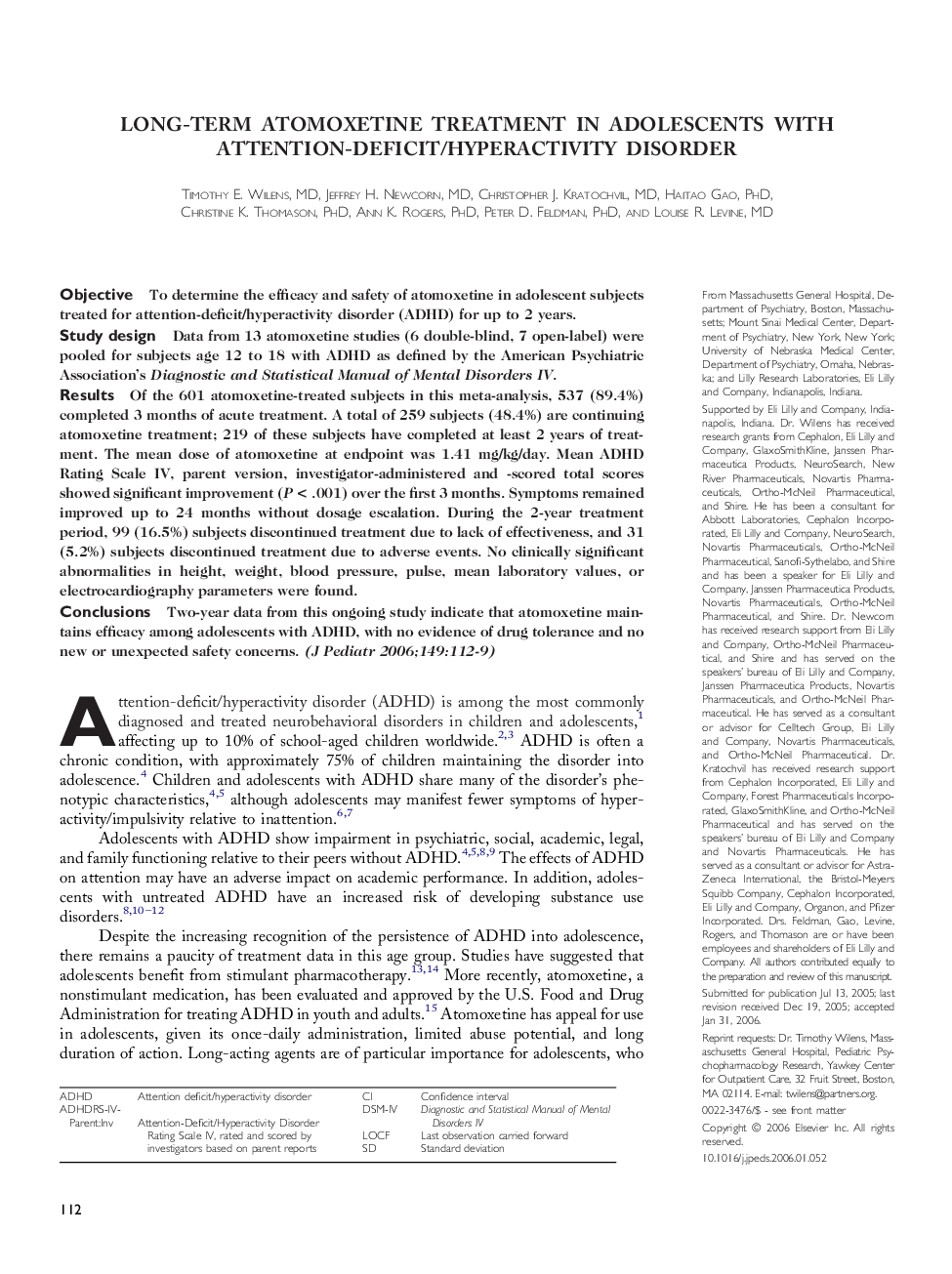| Article ID | Journal | Published Year | Pages | File Type |
|---|---|---|---|---|
| 4169249 | The Journal of Pediatrics | 2006 | 8 Pages |
ObjectiveTo determine the efficacy and safety of atomoxetine in adolescent subjects treated for attention-deficit/hyperactivity disorder (ADHD) for up to 2 years.Study designData from 13 atomoxetine studies (6 double-blind, 7 open-label) were pooled for subjects age 12 to 18 with ADHD as defined by the American Psychiatric Association’s Diagnostic and Statistical Manual of Mental Disorders IV.ResultsOf the 601 atomoxetine-treated subjects in this meta-analysis, 537 (89.4%) completed 3 months of acute treatment. A total of 259 subjects (48.4%) are continuing atomoxetine treatment; 219 of these subjects have completed at least 2 years of treatment. The mean dose of atomoxetine at endpoint was 1.41 mg/kg/day. Mean ADHD Rating Scale IV, parent version, investigator-administered and -scored total scores showed significant improvement (P < .001) over the first 3 months. Symptoms remained improved up to 24 months without dosage escalation. During the 2-year treatment period, 99 (16.5%) subjects discontinued treatment due to lack of effectiveness, and 31 (5.2%) subjects discontinued treatment due to adverse events. No clinically significant abnormalities in height, weight, blood pressure, pulse, mean laboratory values, or electrocardiography parameters were found.ConclusionsTwo-year data from this ongoing study indicate that atomoxetine maintains efficacy among adolescents with ADHD, with no evidence of drug tolerance and no new or unexpected safety concerns.
